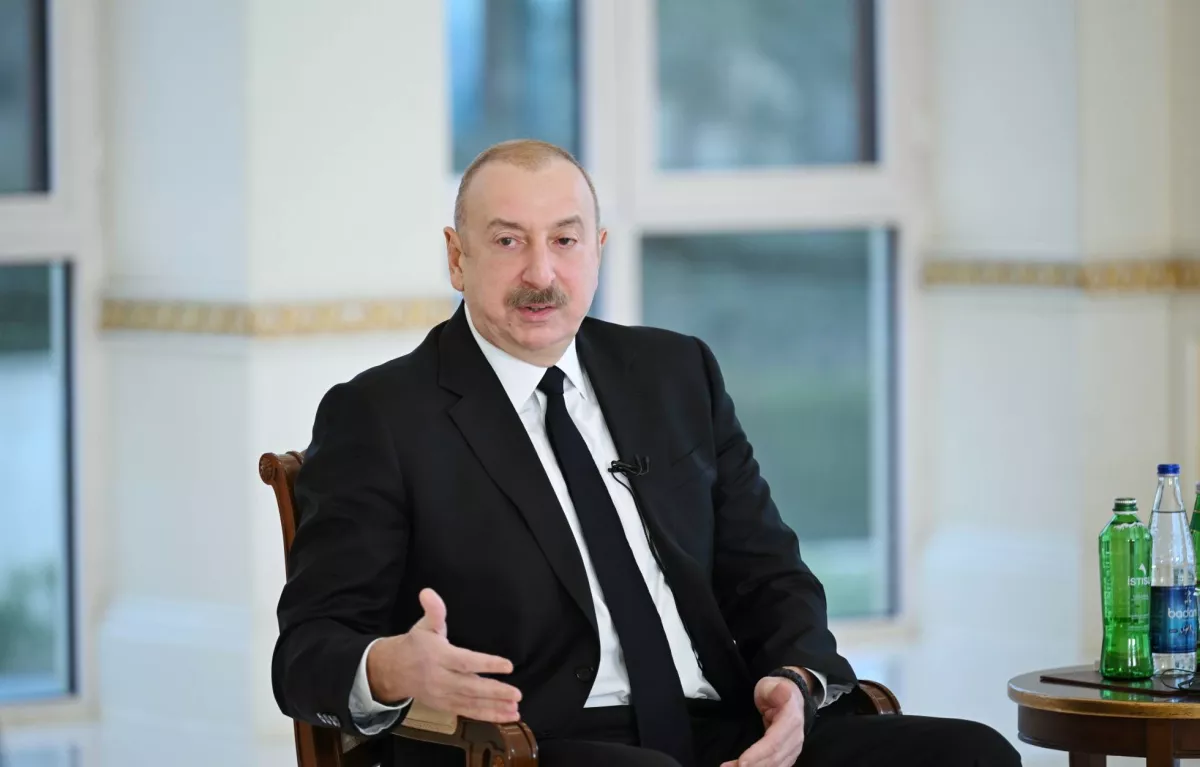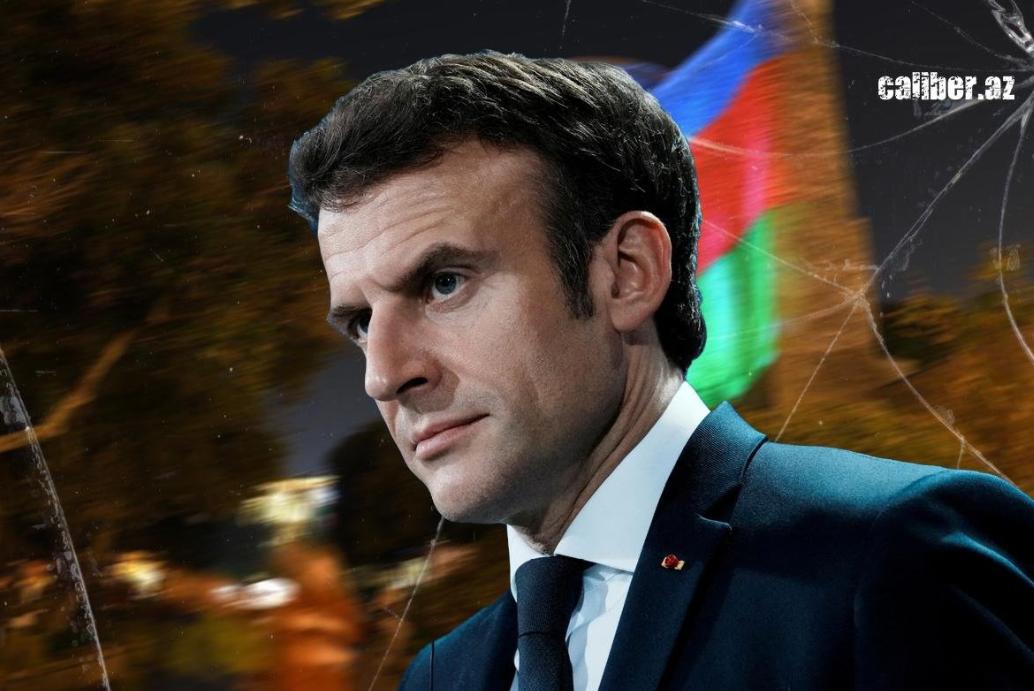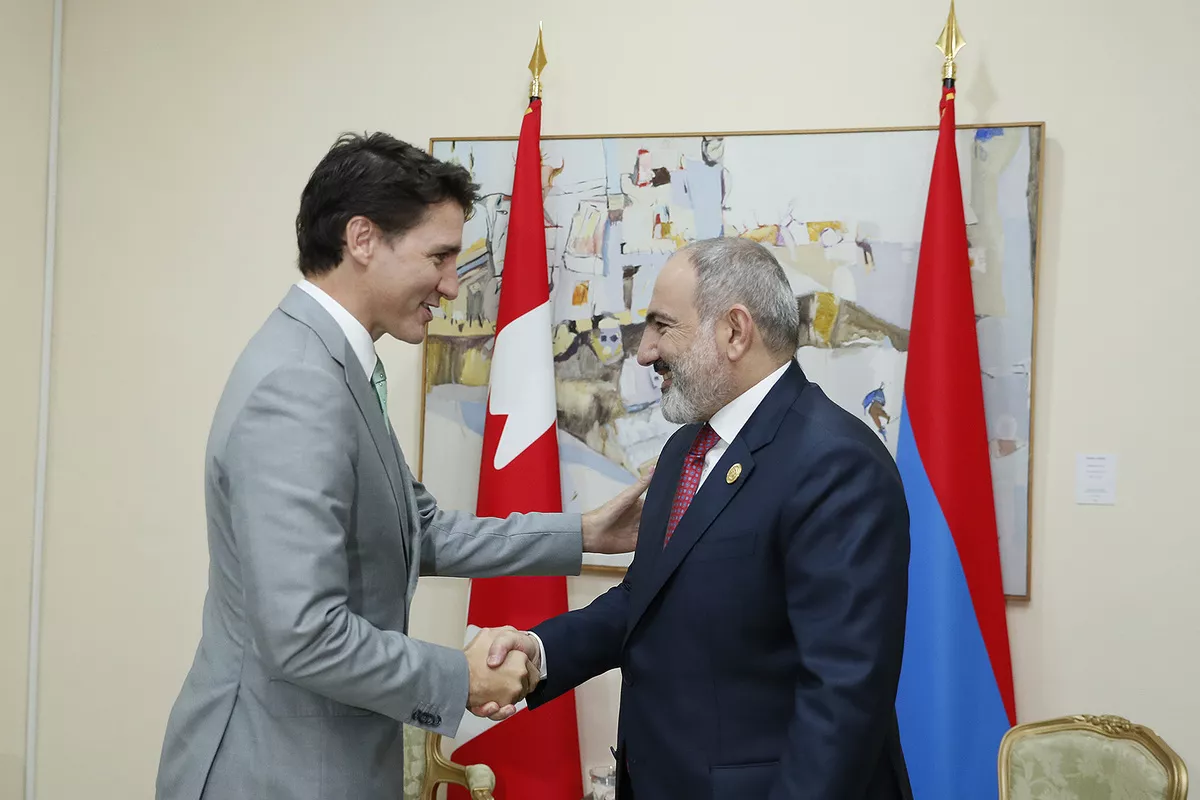Azerbaijan’s political mastery: How Ilham Aliyev’s steadfast leadership outpaces adversaries Reflection on presidential interview
What we witnessed was an in-depth, candid conversation between President Ilham Aliyev and each of us. The journalists from Azerbaijan’s national television channels took on the vital role of asking questions that speak to the heart of our nation’s present and future. In his signature detailed manner, the president offered responses that left no room for ambiguity. I’m sure that in Yerevan, and in the capitals of several other countries, the night was restless after hearing his words.
However, let’s begin with something else: the acknowledgement of an irrefutable truth. "I know that the Azerbaijani people stand behind me. The Azerbaijani people also know that I stand behind them — this is a unique feeling," President Aliyev stated. This sentiment encapsulates both his personal success and our collective achievement. When a leader is at the helm of a nation, driven by a profound sense of responsibility for the country’s future, rather than merely serving as a puppet of external forces, historic breakthroughs and victories are not just possible - they are inevitable.

As such, the failures of temporary figures who have climbed the political ladder by accident become unavoidable. The situation is almost laughable when these mere pawns, controlled by unseen forces, try to oppose leaders who stand firmly with their people and hold a long-term vision for the country’s growth and prosperity. This is precisely the scenario unfolding before us today.
Let’s take a brief stroll through recent history. Let’s recall how, after the "Rose Revolution" in Georgia, the so-called "democratic opposition" — both within Azerbaijan and abroad — let out a collective sigh of hope and disbelief. There were widespread proclamations that Georgia was on the verge of rapid progress, that all its problems would be swiftly solved, and that "we’ll never see such a thing" in Azerbaijan. The same scenario unfolded in Ukraine after the "Orange Revolution," where domestic radicals put on a show, donning orange scarves and ties in their own political circus act. And how did it all end? In failure. A failure for those who had always been distant from the people, those who hoped to ascend the political ladder on the coattails of others. The once-radical opposition leaders have either been relegated to the role of middle-class bloggers or vanished from the political scene altogether.
Now, what about Georgia and Ukraine? Today, they stand in admiration of Azerbaijan, praising our country and its president for accomplishing what they could not: the restoration of sovereignty and territorial integrity. Despite the overwhelming support from the world’s leading powers, Georgia, Ukraine, and Moldova have failed in this regard. Azerbaijan, however, triumphed. And let us not forget the clear and unwavering statement made by the President of Azerbaijan: all three co-chairs of the OSCE Minsk Group were aligned with Armenia. Yes, Azerbaijan has achieved a historic victory — not just over Armenia and global Armenianism, but over the historical and current backers of the neighbouring country, including France, the United States, and Russia.
That's why for three decades, no sanctions were ever imposed against Armenia which occupied 20% of Azerbaijan's territory. Instead, we witnessed a steady stream of support — military aid, political backing, and financial gifts — lavished upon Armenia. This continued even during the 44-day war. But did this assistance benefit Armenia in the end? Clearly not. Despite French President Emmanuel Macron going to extreme lengths to support the occupying nation, his actions ultimately proved futile. Where is he now? Macron, once a towering figure, now finds himself a "lame duck," with more than 60% of the French public calling for his resignation. His list of failures is so extensive that merely listing them would fill a long article.

As for another ardent Armenian supporter, Canadian Prime Minister Justin Trudeau, his fate took a similar turn. On January 6, he announced his resignation as both Prime Minister of Canada and leader of the Liberal Party during a press conference at his Rideau Cottage residence in Ottawa. Why? Because he lost the trust of his party and coalition partners, the Canadian public grew increasingly disillusioned with his inability to deliver on campaign promises. Trudeau, whose past is marked by symbolic gestures like receiving socks in the colours of Armenia’s national flag, found himself meddling in affairs where he had no place. As our president aptly noted, describing Canada under Trudeau, "This country, which was very anti-Azerbaijani during and after the Second Karabakh War, is not far from France".

This truth is one that should deeply concern Armenia's current leadership. Prime Minister Nikol Pashinyan, as we recall, came to power through a wave of revolution. But what have been the early outcomes of his rule? He stands as the figure who not only provoked but ultimately lost the 44-day war — during which numerous long-held Armenian myths were shattered, from the notion of "Artsakh" to the supposed "invincibility" of the Armenian army. At the same time, Pashinyan bears personal responsibility for the bloodshed of Azerbaijani civilians. He ordered missile strikes on peaceful Azerbaijani towns, resulting in the deaths and injuries of hundreds of innocent men, women, and children.
Pashinyan is, in many ways, the "political heir" of Armenia’s first president, Levon Ter-Petrosian. The same Ter-Petrosian who, in a meeting with members of the terrorist group "Yerkrapah" on July 23, 1993, claimed that Armenia and Artsakh had been “completely cleansed of other nations,” calling this a source of pride. This is a direct reflection of the fascist elements that have long plagued Armenian politics — an ideology with many faces, but a singular, toxic essence.
It is no coincidence that Azerbaijan's President reminded the world that we share a border with a fascist state and that the threat of fascism has not disappeared. "Fascism must be destroyed," he asserted. "Either the Armenian leadership will destroy it or we will. We have no other choice."
These are words that will surely rob Pashinyan and other Armenian leaders of sleep. But sleeplessness may not be the worst fate awaiting the Prime Minister of Armenia if he refuses to meet the reasonable demands of Baku. These demands, which are rooted in the pursuit of peace, represent the path to long-term, lasting stability in the region — a goal that President Ilham Aliyev, one of the most prominent political figures of our time, has always championed and continues to pursue.








